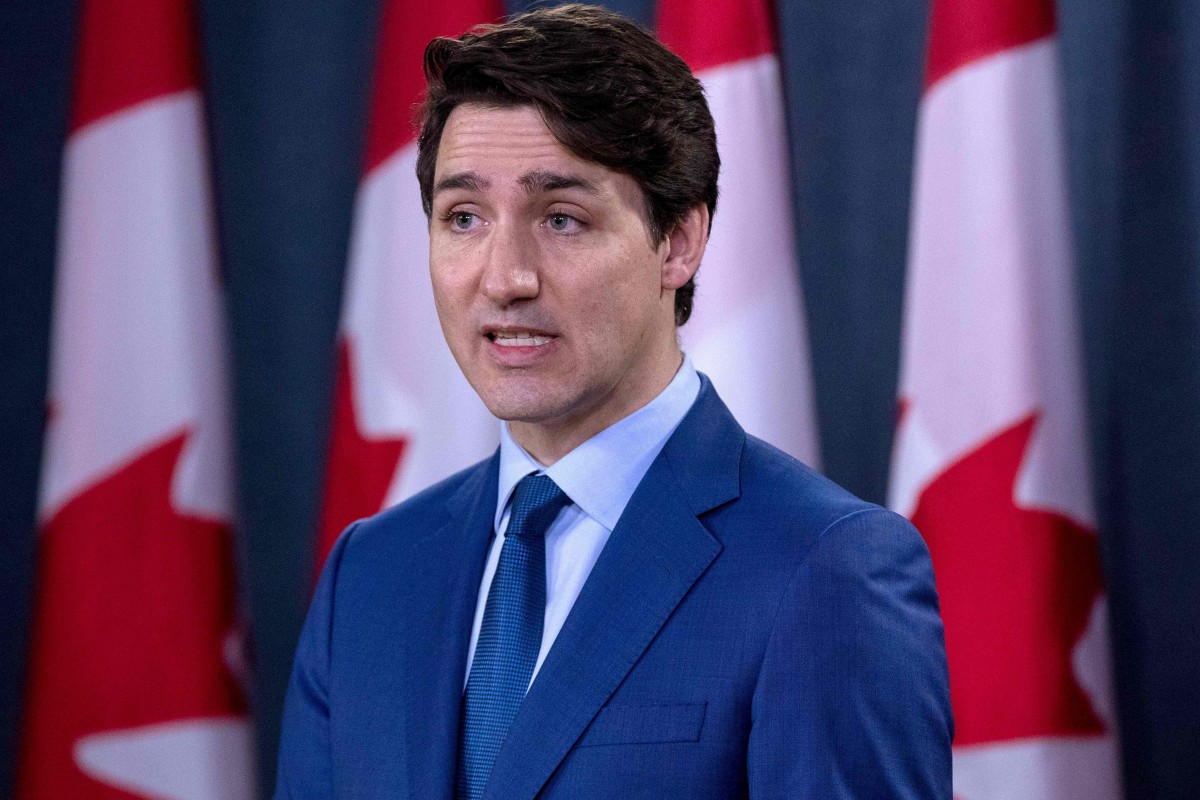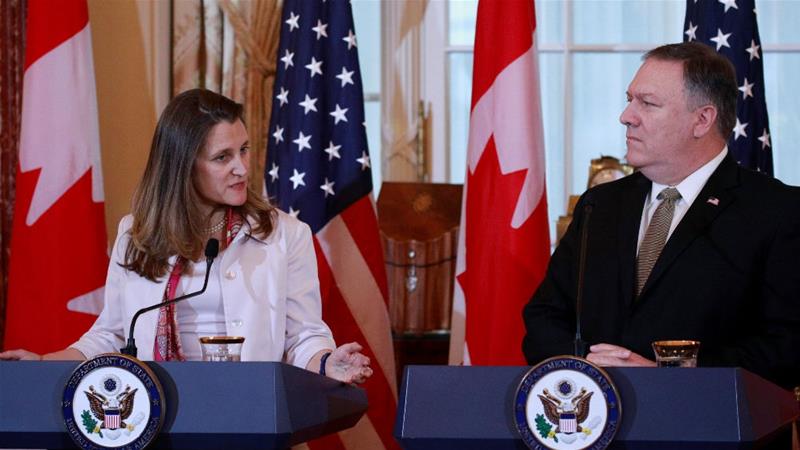Trudeau accuses China of using arbitrary detentions for political ends: ‘This is not acceptable in the international community’
The Guardian
Canada’s relations with China soured after its arrest of Chinese Huawei executive Meng Wanzhou on a US warrant last December.
Justin Trudeau has accused Beijing of using arbitrary detentions as a tool in pursuit of political goals in the latest broadside in a diplomatic and trade row with China.
“Using arbitrary detention as a tool to achieve political goals, international or domestic, is something that is of concern not just to Canada but to all our allies,” Trudeau told the Toronto Star editorial board.
He said nations including Britain, France, Germany and the United States “have been highlighting that this is not acceptable behaviour in the international community because they are all worried about China engaging in the same kinds of pressure tactics with them”.
Canada’s relations with China soured after its arrest of Chinese Huawei executive Meng Wanzhou on a US warrant last December.
Nine days later, Beijing detained two Canadians – former diplomat Michael Kovrig and businessman Michael Spavor – and accused them of espionage as retaliation.
Trudeau added that “we need to figure out how to engage with them, but we also have to be clear-eyed about it, that China plays by a very different set of rules and principles than we do in the west”.
His comments may further inflame tensions between the two countries, which had appeared to be trying to move on from the row.
He said nations including Britain, France, Germany and the United States “have been highlighting that this is not acceptable behaviour in the international community because they are all worried about China engaging in the same kinds of pressure tactics with them”.
Canada’s relations with China soured after its arrest of Chinese Huawei executive Meng Wanzhou on a US warrant last December.
Nine days later, Beijing detained two Canadians – former diplomat Michael Kovrig and businessman Michael Spavor – and accused them of espionage as retaliation.
Trudeau added that “we need to figure out how to engage with them, but we also have to be clear-eyed about it, that China plays by a very different set of rules and principles than we do in the west”.
His comments may further inflame tensions between the two countries, which had appeared to be trying to move on from the row.
This week both Beijing and Ottawa nominated new ambassadors.
The previous Canadian ambassador John McCallum was fired in January after he said it would be “great” if the US dropped its extradition request for the Huawei executive.
She is wanted by the US on fraud charges and is currently out on bail in Vancouver and living in her multi-million dollar home awaiting extradition proceedings.
 Canada's Foreign Minister Freeland (L) and US Secretary of State Pompeo and at a news conference in Washington in December 2018.
Canada's Foreign Minister Freeland (L) and US Secretary of State Pompeo and at a news conference in Washington in December 2018.